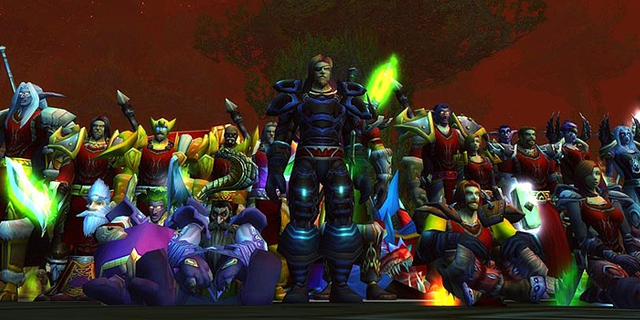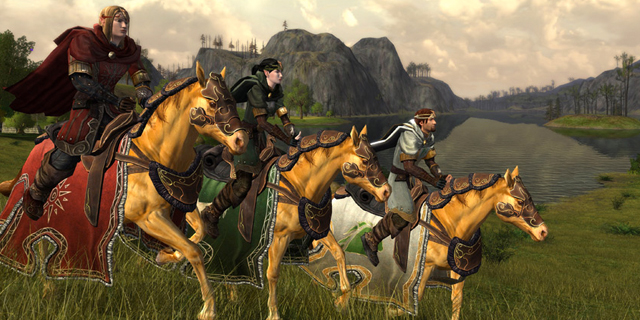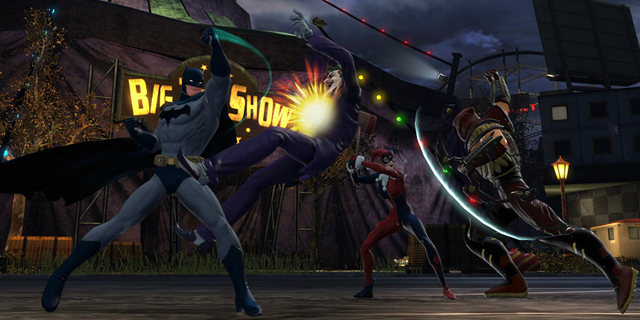
Check out part one of this feature here.
MMOs, like most games, are very derivative. Generally, when you see an original idea in an MMO, it isn’t a full game, just a new component added to the mix. EverQuest probably did the most, though even then, many of the things it brought were simply mechanics well-known to RPG players brought into an online world. I mention this because when Blizzard Entertainment developed World of Warcraft, it really didn’t do anything that new or innovative. The success was purely gained from taking existing mechanics and making them less tedious and more fun for players, while keeping that same gradual progression that keeps players coming back for more.
This is the game most people think of when you hear the word MMO. Released in late 2004, it proceeded to sell so many copies in the first month that Blizzard would have to stop shipments to allow its servers to catch up to the demand. Blizzard has said it expected to get about a million active subscriptions within the first year of operation to call the game a success, and they met that number within weeks, eventually peaking at over 11 million paying accounts. The game’s relatively-low system requirements allowed Blizzard to target a huge market of potential customers. While it can be said the game is in decline (largely because of the simple fact that everyone has at least tried it for a while), it still has millions of subscribers and remains the biggest MMO available.

The inevitable result of World of Warcraft‘s massive success, was of course, a parade of clones, of varying levels of quality. Many of these games inevitably shut down, simply overloading a marketplace that simply could not sustain that many games. Lord of the Rings Online was marginally successful, largely on the detail put into it’s game world, which was generally accepted to be one of the most beautifully crafted worlds in the genre for years after it’s release. It’s since gone free-to-play, but is still going strong, with its third expansion in development. I consider it a prime example of the free-to-play model implemented correctly.
Another subgenre I haven’t mentioned is, of course, superheroes. While the vast majority of MMOs are in a fantasy setting (generally based on an existing IP such as Warcraft or Lord of the Rings), there are several games that are based on superheroes and comic books.
City of Heroes was the first, not actually using existing characters, but creating a brand new IP for the game. When the game began, a printed comic book was published monthly, included in the game’s subscription fee. These games are generally much more action-oriented, with fewer RPG elements, aside from the basic concept of leveling up. Champions Online followed, basing itself around the universe created by Hero Games for its tabletop games. DC Comics is the only major comics publisher to put its characters into an MMO with DC Universe Online, which released in 2011.

One of the inevitable problems facing a MMO developer is judging not only current demand, but what demand will be like in two years when the development is complete, often leading to games being rushed out with many bugs simply to release before a competing title. It’s possibly why none of these efforts have been able to stand the test of time as well as the monolithic Blizzard world.
While it is easy to look at World of Warcraft and see the MMO genre essentially printing money, it is also financially the riskiest game to get into, though with the largest potential payout should a game succeed. Unlike most games, it is much, much, harder to bring in new fans to an MMO. For one, there is a significant investment put into an MMO character, and this isn’t something players are willing to just abandon because a new game is out. Generally, players will follow their friends from game to game, because, at its core an MMO is a social experience, even if the common stereotype involves fans shutting themselves into their basements and playing World of Warcraft all night.



















